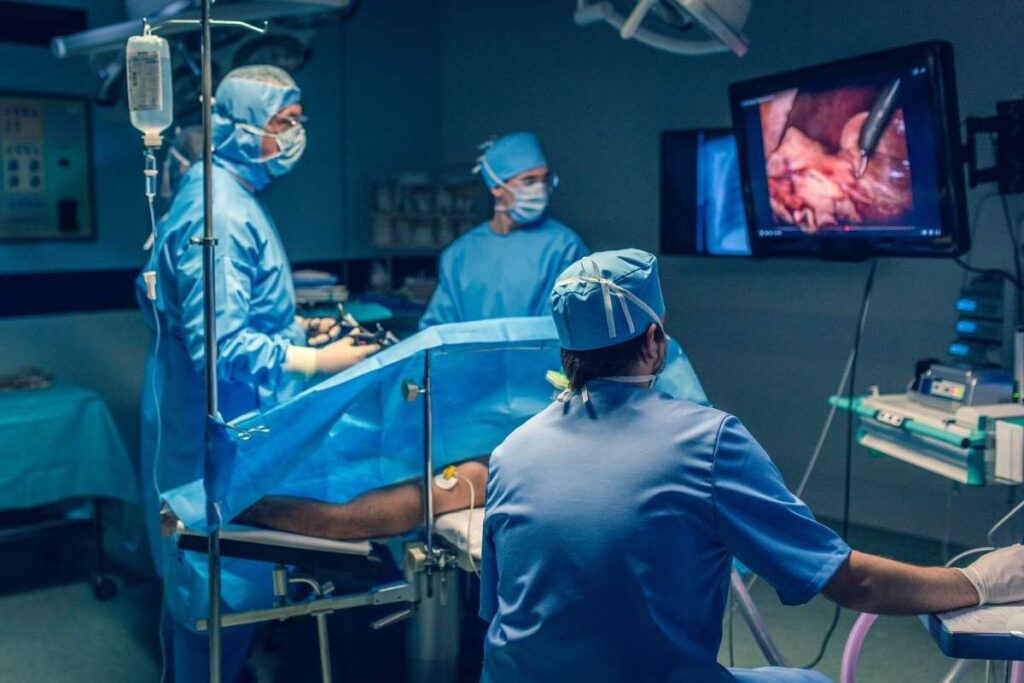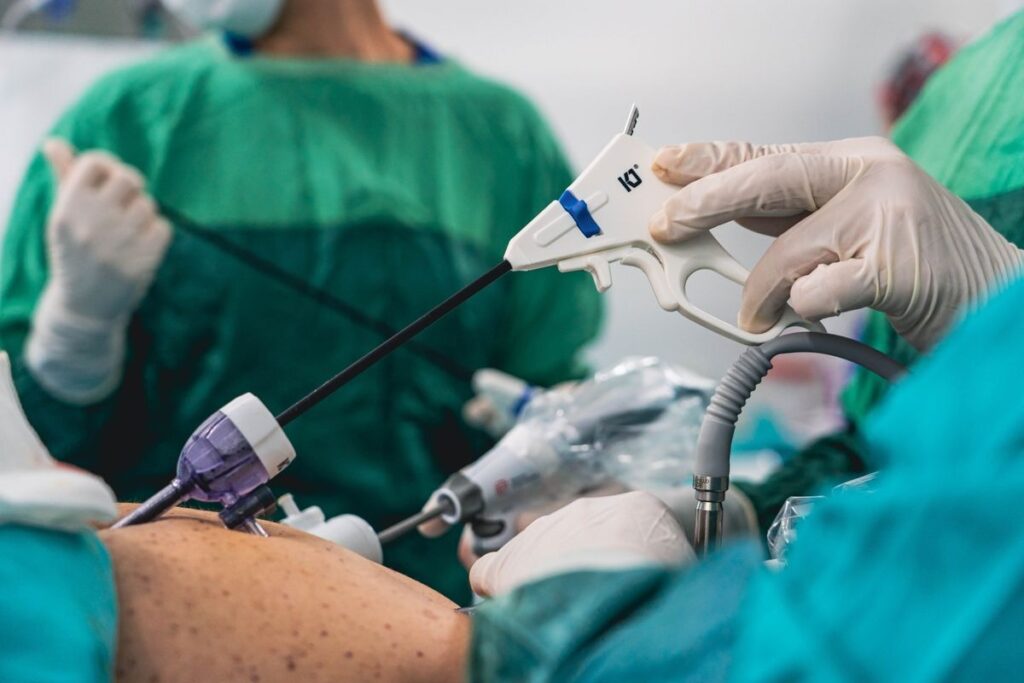Last Updated on October 21, 2025 by mcelik
Understanding pediatric hernia surgery is key for parents. We’ll look into how long pediatric inguinal hernia repair takes and what parents should expect.

Pediatric hernia surgery time can vary. It depends on the child’s age and the surgery’s complexity. At our institution, we know parents want to know what to expect.
The UPMC Children’s Hospital of Pittsburgh says surgery usually lasts 30 minutes to 1 hour. But the exact time can change based on the case’s details.
Infant hernia repair is very delicate. A recent study in JAMA found the median surgery time for infants was 57 minutes for early repairs and 70 minutes for delayed repairs.
The JAMA study sheds light on infant hernia repair surgery times. The study found:
This shows how important quick action is and its effect on surgery time.
Several things can affect how long pediatric hernia surgery takes. These include:
Our medical team carefully looks at each case. They choose the best surgical approach for our young patients.

Surgeons use different methods for hernia repair in kids. These include open repair and minimally invasive techniques. The choice depends on the child’s age, health, and the hernia type.
Open repair is a traditional method. It involves a small incision in the abdomen to fix the hernia. This technique is well-established and has a high success rate. The surgery usually takes about 30 minutes to an hour, depending on the case.
“The open repair technique is a reliable method for hernia repair in children,” recent studies say. It works well for certain hernias.
Laparoscopic and minimally invasive techniques are gaining popularity. They offer smaller incisions, less tissue trauma, and quicker recovery. These approaches use a laparoscope to see the hernia and fix it through small incisions. Studies show they have low reoperation and complication rates.
There’s a move towards these techniques in pediatric hernia surgery. They offer similar safety and effectiveness as open repair, but with less scarring and faster recovery.
The benefits of laparoscopic and minimally invasive approaches include:
We’re always improving our surgical techniques to give the best care. By using open repair and minimally invasive methods, we can tailor treatment to each child’s needs.

When it comes to fixing hernias in kids, age matters a lot. The way we operate and care for them changes with their age and growth. Kids under 3 might need more surgeries, but both lap and open methods work well. Our pediatric surgeons are skilled in treating kids of all ages, making sure each one gets the right care.
For babies with hernias, the surgery is adjusted to fit their needs. It aims to make recovery fast and cut down on risks. Our surgeons are great at these delicate surgeries, giving our young patients the best care.
As kids get older, the surgery for hernias changes, too. The method used now considers their active lifestyle and need for quick healing. Laparoscopic and minimally invasive approaches are often used, as they mean smaller cuts and less pain after.
For toddlers and young kids, we focus on a quick and easy recovery. This lets them get back to their usual activities fast. Our team is dedicated to giving pediatric inguinal hernia care that’s both effective and caring, tailored to each child’s needs.
Parents are key in helping their child recover from inguinal hernia surgery. Knowing what to expect makes the process easier. Our healthcare team is here to guide families through this important time.
Right after surgery, kids are watched in the recovery room. Prompt repair is the standard practice, with over 88% of pediatric incarcerated hernia cases getting early surgery. Parents can expect their child to be checked for vital signs and any discomfort or pain.
This can be a worrying time for parents. Our medical team is committed to keeping you updated on your child’s condition. Effective pain management is a top priority, and we’ll discuss the best options with you.
The time spent in the hospital after inguinal hernia surgery varies. It depends on the child’s age, health, and surgery complexity. Many kids have outpatient surgery and go home the same day. But some might need a short stay to watch for complications.
The recovery time changes with the child’s age. Kids usually feel better in a few days and much better in 7 days. Some might feel discomfort for weeks. Newborns and infants need extra care because of their delicate health.
Our healthcare team offers personalized guidance to help families through recovery. We ensure a safe and smooth recovery for children of all ages.
It’s key to manage post-surgical issues to keep kids comfortable and recovering well after hernia surgery. While rare, knowing how to handle complications is vital for parents.
Hernia surgery is common in kids. But, like any surgery, it might have complications. Testicular and scrotal swelling are common issues parents should be ready for.
Some kids might see swelling or discomfort in the scrotal area after surgery. This can worry parents. But swelling is usually temporary and goes away by itself. It’s important to watch the swelling and talk to your doctor if you’re worried.
“Swelling of the testicles or scrotum can happen after inguinal hernia surgery,” a top medical journal says. “Even though it might scare you, it’s usually not a big deal and will get better with time.”
Managing pain well is key to your child’s comfort during recovery. Stick to the pain plan your healthcare team gives you. This might include medicine and other ways to reduce pain.
By using these tips and talking closely with your healthcare provider, you can make your child’s recovery as easy and pain-free as possible.
Knowing what to expect and how to prepare your child for hernia surgery can help reduce stress. We’re here to guide you through the steps for a smooth experience.
We will schedule pre-surgery talks to discuss the procedure and address concerns. These talks are key to making sure your child is ready for surgery. At UPMC Children’s Hospital of Pittsburgh, we’ll talk about the surgery and recovery.
During these talks, we’ll also cover pre-operative testing. This may include blood work and urine analysis to keep your child safe during surgery.
On surgery day, following specific instructions is important. We’ll give you details on arrival times, pre-operative preparations, and medication management. For example, we might tell you about dietary restrictions.
To make the day smoother, bring essential items to the hospital. These include:
By being well-prepared and following our instructions, you can help ensure a successful hernia surgery experience for your child. If you have any questions or concerns, we are always here to support you.
Pediatric hernia surgery often has good results, both short-term and long-term. Experts say that teams working together and using the latest methods are key. This helps ensure children stay healthy after surgery.
At LivHospital, we focus on getting better, being honest, and using proven methods. We aim to give kids the top care for hernia repair. Our goal is to meet the highest international standards.
Success comes from skilled surgeons, complete care plans, and ongoing support. Most kids do well after hernia surgery, with few problems. By checking in with our patients, we help them stay healthy long-term. This leads to high success rates in pediatric hernia surgery.
Pediatric hernia surgery time varies. It depends on the child’s age and the surgery’s complexity. For infants, it usually takes about 57-70 minutes.
There are several ways to repair hernias in kids. These include open repair and laparoscopic surgery. The choice depends on the child’s age and the surgery’s complexity.
Recovery time differs by age. Kids usually take a few days to a week to get better. Our team offers detailed guidance to help families during this time.
After surgery, kids might experience swelling in the testicles and scrotum. Our medical team can help manage these issues with proper care.
Preparing your child means attending pre-surgery consultations and tests. You’ll also need to follow day-of-surgery instructions and know what to bring to the hospital. We help make the process smooth for you and your child.
Hernia surgery in kids is very successful. Both short-term and long-term results are usually good.
We offer strategies to manage your child’s pain after surgery. Our team is dedicated to ensuring your child’s comfort during recovery.
Hospital stay time varies by age and surgery complexity. Our team will guide you on what to expect.
Yes, newborns and infants need special care. The surgery technique for them might differ from older kids. Our pediatric surgeons are skilled in handling surgeries for all ages.
Yes, swelling in the testicles and scrotum can happen after surgery. It’s a common issue that our team can help manage with proper care.
Recovery includes immediate care after surgery, hospital stay, and follow-up visits. We provide detailed guidance to support families through this process.
Subscribe to our e-newsletter to stay informed about the latest innovations in the world of health and exclusive offers!
WhatsApp us